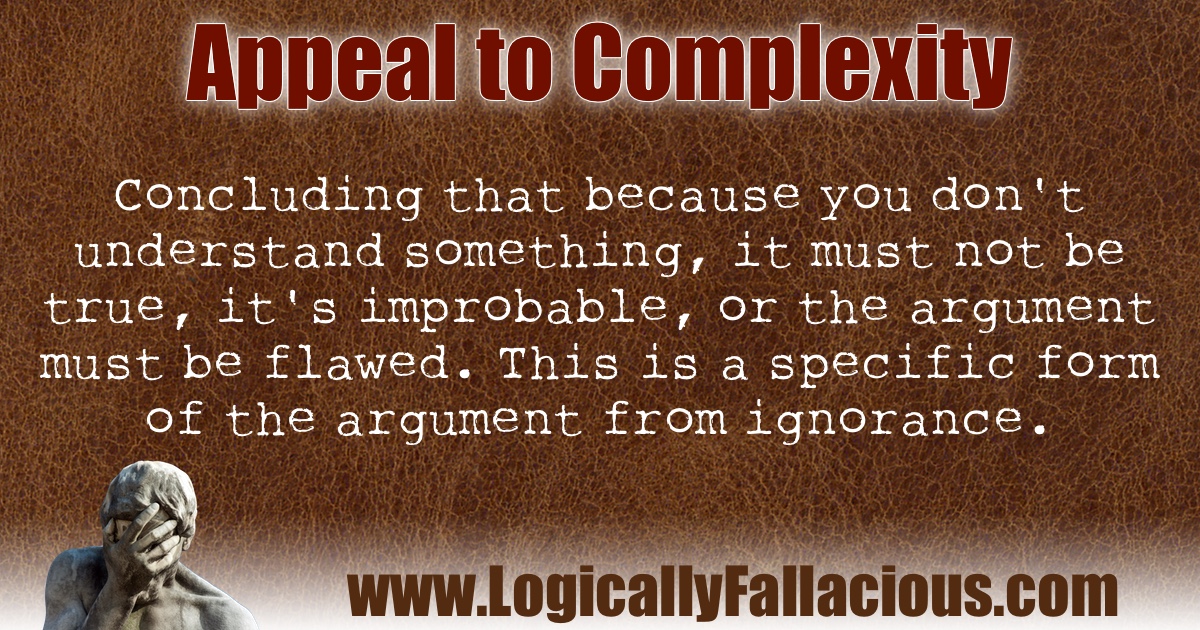Description: Concluding that because you don't understand something, it must not be true, it's improbable, or the argument must be flawed. This is a specific form of the argument from ignorance.
Logical Form:
I don't understand argument X.
Therefore, argument X cannot be true / is flawed / improbable.
Example #1:
Bill the Eye Guy: The development of the eye is monophyletic, meaning they have their origins in a proto-eye that evolved around 540 million years ago. Multiple eye types and subtypes developed in parallel. We know this partly because eyes in various animals show adaption to their requirements.
Toby: Uh, that sounds made up. I don't think the eye could have evolved.
Explanation: Yes, the evolution of the eye is confusing to non-biologists and those who are not familiar with evolutionary theory and natural selection. But the complexity of this argument is not a reason to reject it or find it less credible than a simpler claim (e.g. Zeus created eyes from clay).
Example #2: If a layperson criticizes a complex policy about which they know nothing or very little, they are probably appealing to complexity.
Explanation: Black and white thinking is found where one has a lack of knowledge about a topic. Policies such as national healthcare are incredibly complex where each change has benefits and drawbacks. Non-experts often will dismiss a 1000-page document and say something such as, "Look, it's simple. Do this, this, and this. Problem solved." No, it's not simple, and that wouldn't solve the problem.
Exception: When the one making the argument doesn't understand what they are actually saying, they are committing the argument by gibberish.
Tip: It is the job of the arguer to make the argument as clear as possible, and use language and terms that the audience can understand. This is a major problem in science communication. The curse of knowledge often leads to those trying to explain a complex topic in such a way where they assume the audience has as much knowledge in the fields as they do. If your audience fails to understand your argument, don't blame the audience; explain your argument differently.

References:
This is a logical fallacy frequently used on the Internet. No academic sources could be found.
Questions about this fallacy? Ask our community!